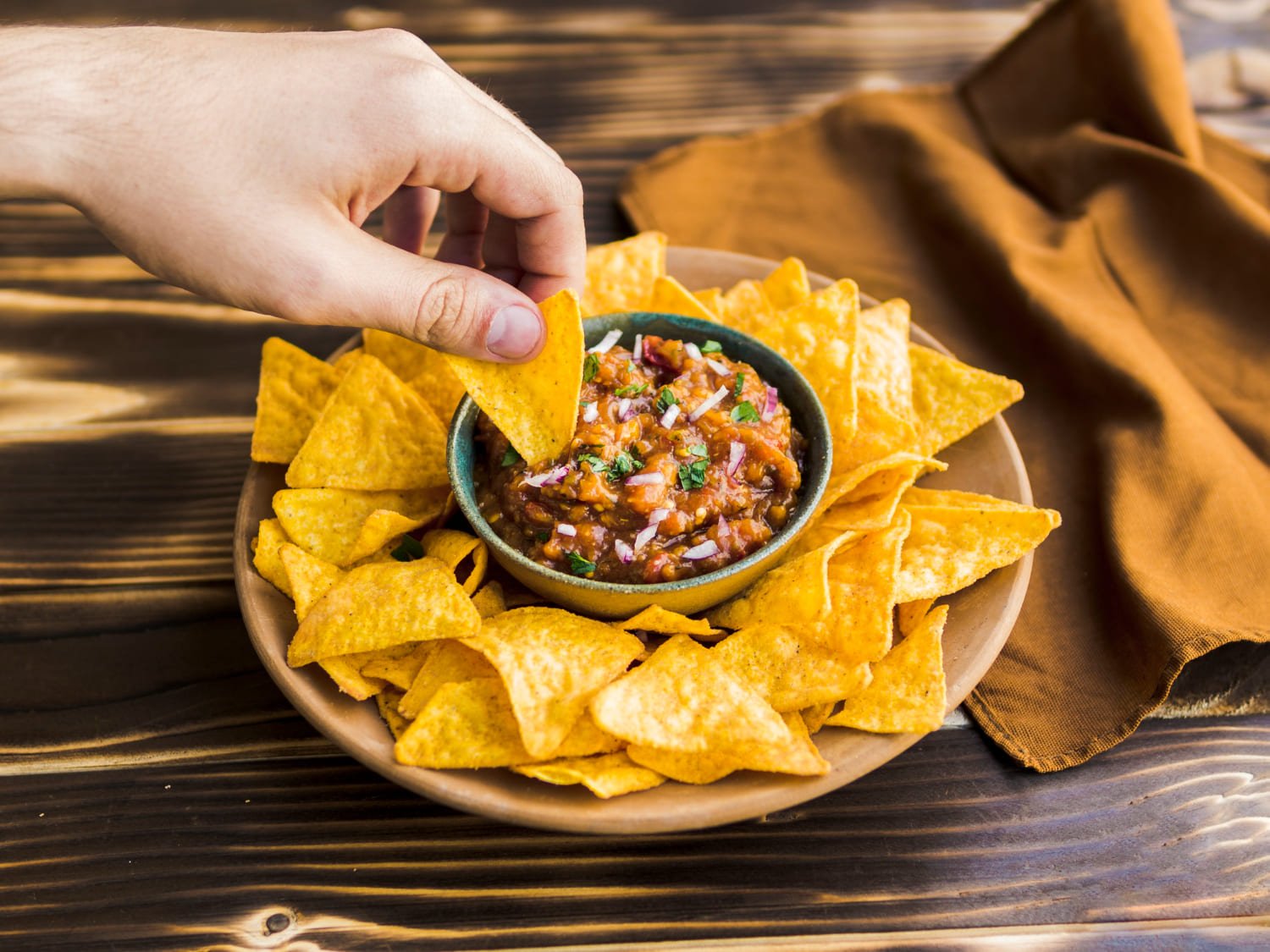What Parents Can Learn From Social Media’s ‘Dorito Theory’

The world today believes in instant gratification. In this regard, kids are growing up believing the same. For music, even children have “Alexa” to play any song they desire. The youngsters these days will never understand the frustration of sitting by a pink boombox, praying their favorite song will come on.
Children these days are hyper-focused and obsessed with a group chat or a game. The youngsters want to get their absolute “needs” fulfilled before quickly moving on to something newer and shinier. They are not at all appreciative of all that’s at her fingertips. It seems like everything is unable to satiate her boredom.
While some adults are making efforts to stop mindless scrolling and impulse shopping, it’s becoming tough for them to control youngsters. Young people, especially children as well as teens, aren’t ready to slow down, take a breath, and find more meaningful ways to spend time.
The so-called Dorito Theory is making the rounds on TikTok. One now-viral video has the poster clearly explaining why unsatisfying activities tend to be the most addicting ones to engage in.
The simple concept to highlight here is that when you eat a Dorito and finish your bite, you will not be fully satisfied. There is no similarity to eating a steak or eating a really satiating food that’s high in protein where after a bite, you really feel sort of that fullness and that sense of satisfaction. The point to be noted here is that eating potato chips is addictive. Eating brings the peak of experience. The addiction is felt when we are tasting it, and not after.
Applying the ‘Dorito Theory’ at Home

The Dorito Theory is useful for adults who have the “a-ha” moment needed to break free of toxic relationships with substances, people, food, and social media. Dorito’s Theory helps adjust parenting style and helps children find ways to stay present, enjoy things for longer, and stop rushing through life.
Adults need to learn lessons and consider incorporating the Dorito Theory into the home.
1. Make Connection
It’s tough for adults to make their kids feel satisfied. Being surrounded by options that allow them to move on the minute they feel a bit bored, frustrated, or unsure is what’s causing the issue. It’s worth bringing the child the refreshment only when the child is done finishing a book or mastering a new gymnastic trick. So, they will naturally think twice before reaching for the iPad.
2. Out of Sight, Out of Mind
Holding back highly addicting things—toys, treats, and digital devices for a certain time is essential. But it is not at all advisable to completely hide or take them away. The point to be noted here is to limit access by building habits that set rules and provide rewards. As a parent what you should do is to make situations contingent and phrase statements using ‘first and then’.
3. Show Kids, and don’t stay limited to words
It’s easy to demand that children get off their iPads and go ride their bikes or read a book instead. It’s wrong to expect the child to take the parent seriously when the parent himself or herself is texting, social media deep diving, or online shopping.
Feeding our souls with meaningful experiences is what’s essential. Subsisting on just Doritos will never make bodies flourish. Our minds are built in the way that we crave diverse, enriching experiences. In this regard, as a society, we should aim for diverse, enriching experiences. Parents should steer kids to spend time with friends, relish in family time, and dive into hobbies, teaching them to seek something that genuinely fills them with happiness.
Such practices boost mental health and set a foundation for a joy-filled life. The Dorito Theory, popularized on TikTok, clearly highlights the fact that unsatisfying experiences lead to addictive habits. People have also been choosing to break up after realizing their unhealthy relationships through this theory, as they are choosing to recognize their toxic patterns.
The viral ‘Dorito Theory’ and people breaking up because of it
Modern dating and relationships are complex but also need modern solutions. The Dorito Theory earned popularity after the Orange Peel theory. In this regard, people are now trying to figure out their relationship and whether it is healthy through this new theory. Also, people are breaking after analysis of their relationship based on this theory.
The ‘Dorito Theory’ – is it legit?
The ‘Dorito Theory’ has gained attention on social media, especially on TikTok. The theory is based on the idea that if you end up eating a lot of Dorito chips without giving thought to it, then such a pattern impacts other parts of your life as well. The pattern shows one’s lack of self-control and boundaries, spilling into other aspects of their life, leading to unhealthy patterns.
The Dorito theory has taught many people to see everything a little bit differently. Addiction applies to other parts of one’s life, including scrolling endlessly on social media, which is never satisfying. One should make efforts to refrain from unhealthy patterns. As humans, we must understand that not experiencing satiation when engaging in a particular activity influences us to stay in a situation that is not truly satisfying. We stay with the illusion that we are satisfied, but that’s not true.
Also, these days content creators use various platforms to kick start new trends. They choose to use the platforms for sharing their new discoveries. Over time, these ideas and concepts go viral as a result of their relatability. It is fruitful in the manner that various users sharing their experiences and opinions actually help as a community.
Who popularised the Dorito Theory? – New trend explained
TikTok star Celeste Aria gained major popularity after posting a video explaining why she believes people take part in “doom scrolling.” She highlights how binge eating junk food has become such a problem for some. Aria explains what the Dorito theory is and how it is capable of impacting more people. The TikToker delved deeper into the idea and even drew comparisons to other food items. Also, people have pointed out that people addicted to slot machines have the highest dopamine levels when it is spinning rather than when winning OR losing.
“Dorito theory” offers an explanation for the very relatable inclination to keep doing things that are fine for momentary satisfaction but not truly satisfying. Our brains are hard-wired to keep seeking full satisfaction when we’re only getting little hits of pleasure. Commenters on the post also shared plenty of opinions.
A board-certified psychiatrist, Dr. Jamie Sorenson, had even shared his opinion that the TikTok-famous concept makes sense from a psychiatric perspective. Dorito’s theory applies to mindless daily habits, including snacking or doom scrolling. The notion also applies to big things, like romantic relationships.
Relationship behavior mirrors addiction, and she adds that when her patients are in toxic relationships.
Dorito Theory – Unhealthy Online Habits
People have often compared Social media addiction to substance addiction; research links excessive screen time to depression, poor body image, and other mental health issues. The impact of social apps on youth health is immense. This is the reason why experts have prompted warnings.
Tech companies, like Meta, have introduced features aimed at promoting healthier online behaviors. Meta introduced a “nighttime nudge” feature to remind young users to take breaks from their screens. Also, it has announced plans to curb potentially harmful content shown to teens. The allure of social media remains strong; addiction rates have been increasing, particularly among younger demographics.
It’s worth understanding the psychology behind addiction, and in this regard, the “Dorito Theory,” provides a valuable tool for individuals looking to regain control of online habits.
Mental health expert and author Dr. Gregory Jantz highlighted the increase in anxiety, depression, and digital addiction among youth, and it has increased since the start of the COVID-19 pandemic. There is an urgency to address social media addiction and promote healthier online behaviors.
“Dorito Theory” offers a fresh perspective on understanding and addressing addiction to platforms. Recognizing the allure of unsatisfying activities and prioritizing meaningful engagement make it easier for individuals to take steps towards breaking free from the grip of social media addiction and reclaiming control over their digital lives.
Final Say
The Dorito theory lets an individual see as a way to identify one’s problem areas. Worst habits have that addictive drive. The difference between this pleasure that drives addiction and true satisfaction is addiction comes from chasing the peak experience, but that’s different from satisfaction. There is no point in chasing satisfaction; it just arises. So there won’t be anything like getting addicted to the satisfaction.




